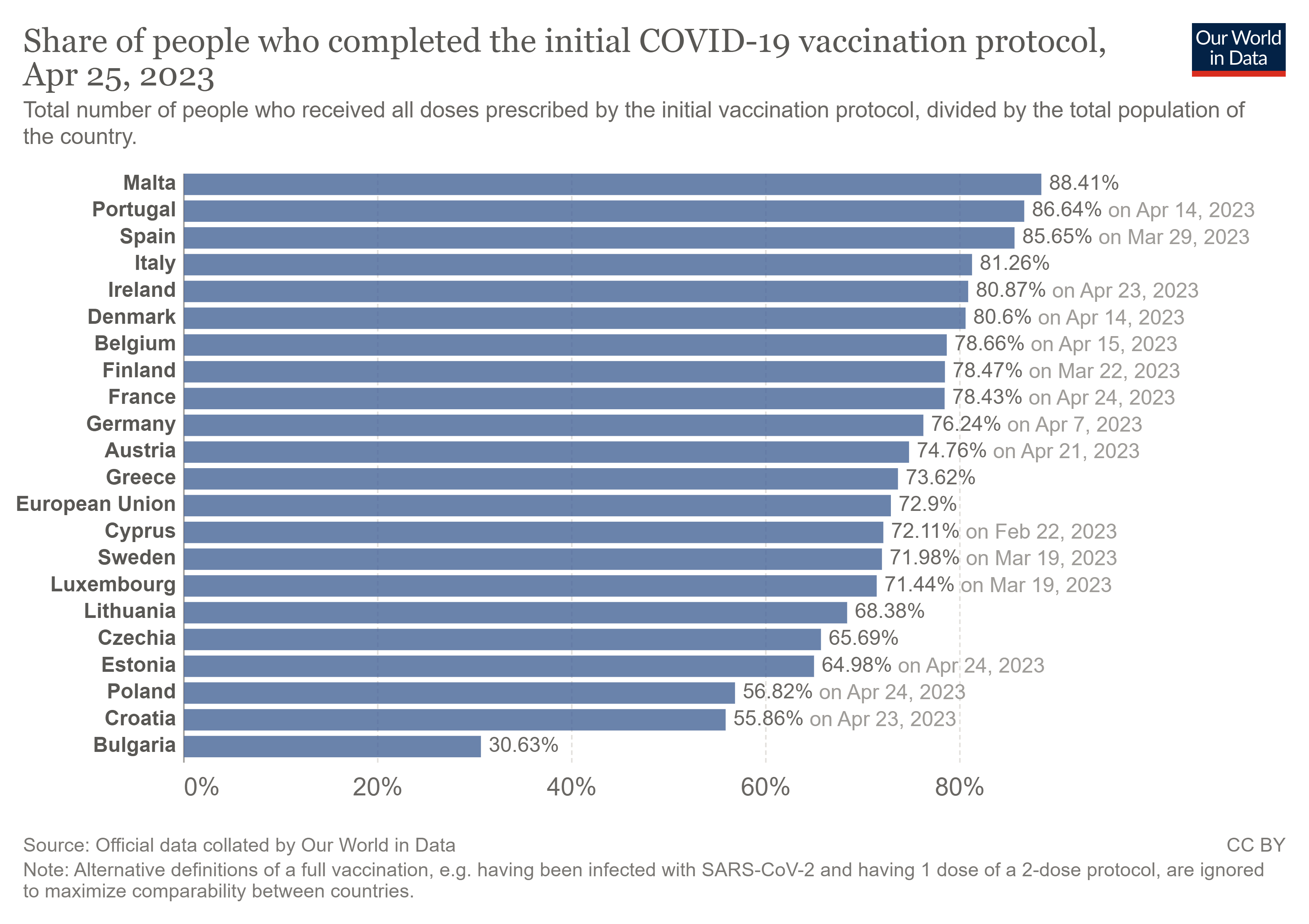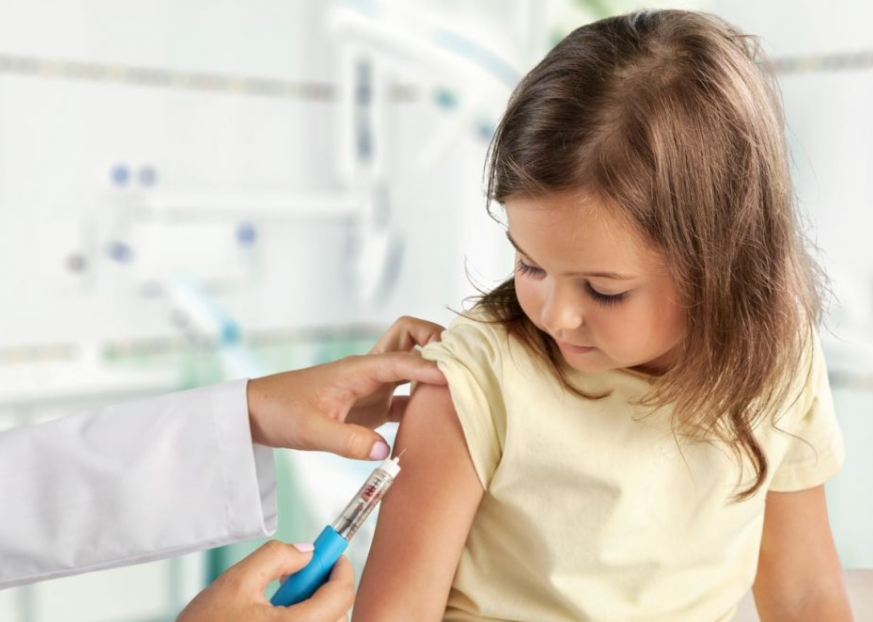The number of parents refusing compulsory vaccinations for their children has more than doubled in the last five years and risen 21-fold since 2010, new official data show. Experts warn that the growth of such “anti-vax” sentiment is putting public health at risk.
In 2022, there were 72,722 cases of parents refusing vaccinations, reports NIZP-PZH, a state public health institute. That was up from 61,368 the previous year and from 30,090 in 2017. Back in 2010, the figure stood at just 3,437 but has risen every year since.

Vaccination refusal rates vary significantly across different regions of Poland, according to a map based on 2021 data published last week by NIZP-PZH.
It shows that the highest refusal rates – of between 12.1 and 15 cases per 1,000 people – were recorded in the provinces of Silesia and Wielkopolska while the lowest – of less than 4 cases per 1,000 people – was in Subcarpathia.
Parents who refuse compulsory vaccinations for their children can in theory be issued a fine of up to 10,000 zloty (€2,200) but in practice fines do not exceed a few hundred zloty.

The growing number of vaccination refusals “threatens us with epidemics of illnesses against which we have free, safe and effective vaccines”, warns NIZP-PZH, noting that this is a particular danger in areas with large numbers of unvaccinated children.
Medical news service Medonet notes that for some diseases, such as measles, the number of children being vaccinated has already fallen below the 95% threshold required for herd immunity. In 2017, the level had dropped to 93% and is now even lower.
“Measles is a disease many times more contagious than COVID-19,” warns Hanna Czajka, a paediatrician and specialist in infectious diseases. “With such a scale of virus transmission and a further decline in the number of vaccinations, the outbreak of a measles epidemic will have catastrophic consequences.”
The number of children receiving measles vaccines in Poland has fallen below the level required for herd immunity, warns @UNICEF.
It blames "disinformation and myths" spread by anti-vaccination groups, and has appealed to the government to take action https://t.co/GKLTnDoV5Y
— Notes from Poland 🇵🇱 (@notesfrompoland) April 22, 2021
Jarosław Pinkas, one of Poland’s leading public health experts, notes that parents’ decision to refuse vaccinations is a threat not only to their own children but also to those who are unable to vaccinate for medical reasons or to those for whom the vaccination was not effective.
That is why it is so important to have the “protective cocoon” of herd immunity, he told the Polish Press Agency (PAP). “Creating this cocoon is our social and moral duty.”
“We have forgotten how dangerous infectious diseases are because we were well vaccinated,” added Pinkas. But now “we are one step away from some infectious diseases, such as measles or polio, knocking on our door again”.
Thousands joined an anti-vaccine "freedom march" in Poland, chanting "we are the fourth wave", "false pandemic" and "the government is killing".
Organisers called for those "guilty of crimes against the Polish nation” to be brought to justice https://t.co/eynY1PI1UN
— Notes from Poland 🇵🇱 (@notesfrompoland) August 7, 2021
Pinkas notes that the internet, and social media in particular, have driven the rise in misinformation claiming that vaccines are dangerous. While he “is not in favour of censorship”, he says that increased efforts must be made to present reliable information online.
Like many other countries, Poland has seen the rapid growth of its “anti-vax” movement in recent years. It was given further impetus during the pandemic when Covid vaccines were rapidly rolled out, prompting mass protests in Poland that were supported by the far right.
Only 57% of Poles are fully vaccinated against COVID-19, according to Our World In Data, compared to 73% across the European Union as a whole. Poland’s figure is the third lowest among the 21 member states for which data is available.


Daniel Tilles is editor-in-chief of Notes from Poland. He has written on Polish affairs for a wide range of publications, including Foreign Policy, POLITICO Europe, EUobserver and Dziennik Gazeta Prawna.



















